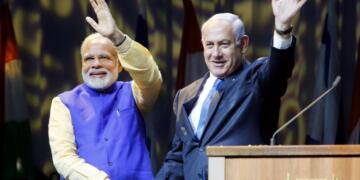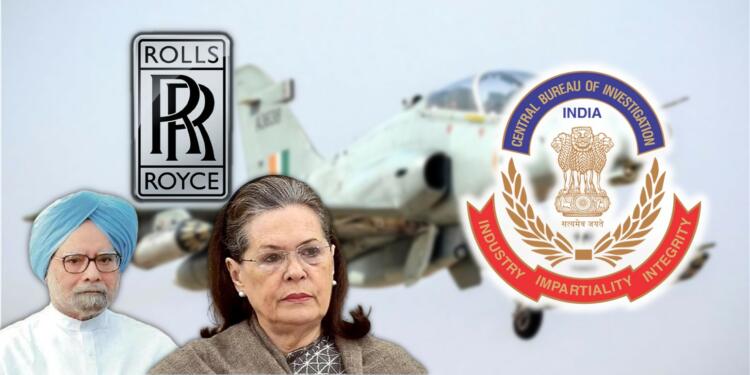Rolls Royce Controversy: The recent filing of a complaint by India’s Central Bureau of Investigation (CBI) against Rolls Royce, its former India director, Tim Jones, arms dealer Sudhir Choudhrie, and British Aerospace Systems (BAE Systems) has sparked a new controversy in Indian politics.
Let’s analyze the implications of the Rolls Royce controversy and its potential impact on the UPA government, already mired in corruption allegations.
The Controversial Hawk 115 Trainer Aircraft Deal
It all began with the recent filing of a complaint by India’s Central Bureau of Investigation (CBI) against Rolls Royce, its former India director, Tim Jones, arms dealer Sudhir Choudhrie, and British Aerospace Systems (BAE Systems) has sparked a new controversy in Indian politics. The accusations pertain to alleged corruption in the purchase of Hawk 115 trainer aircraft back in 2004, during the tenure of the National Democratic Alliance (NDA) government led by Prime Minister Atal Bihari Vajpayee.
So how is it connected to UPA? Well, the process did begin during the NDA era, but following the ascent of UPA, things changed for the worse. In 2004, the Indian government entered into a deal with Rolls Royce for the purchase of dozens of Hawk 115 trainer aircraft. The agreement aimed to enhance India’s defence capabilities and strengthen the Indian Air Force. The Hawk 115 aircraft are known for their advanced training capabilities and have been widely used by many countries.
Also read: UPA government was hell bent on selling the entire Delhi to Wakf Board
The recent CBI complaint is a result of a preliminary inquiry conducted in December 2016 during Prime Minister Narendra Modi’s first term. The complaint alleges corruption in the deal and implicates Rolls Royce, Tim Jones, Sudhir Choudhrie, Bhanu Choudhrie, and BAE Systems. The allegations suggest that bribes were paid to secure the contract and inflate the license fee.
Reopening The investigation by the UK’s Serious Fraud Office
In 2012, the UK’s Serious Fraud Office initiated an investigation into Rolls Royce’s business practices. The investigation revealed a pattern of corrupt activities, including the payment of bribes to intermediaries in several countries, including India. The allegations involving the Hawk aircraft deal were part of this investigation. Rolls Royce eventually settled the case with the Serious Fraud Office in 2017, agreeing to pay a fine of $614.21 million.
The UPA government, already embroiled in various corruption allegations such as the Augusta Westland case, now faces the potential fallout of the Rolls Royce controversy. The timing of these allegations could spell further trouble for the UPA, as it raises questions about the transparency and integrity of the deals made during their tenure.
The Rolls Royce controversy has the potential to tarnish the UPA’s reputation and weaken public trust in their governance. The allegations of corruption in defence deals highlight a systemic problem that needs to be addressed. It also raises questions about the effectiveness of oversight mechanisms and the role of government agencies in ensuring transparency and accountability in defence procurement.
The impact of corruption in defence deals goes beyond financial losses. It undermines national security by compromising the quality and efficiency of defence equipment. In the case of the Hawk aircraft deal, the allegations suggest that kickbacks and bribes may have influenced the decision-making process, potentially compromising the safety and effectiveness of the aircraft.
The CBI’s complaint and the reopening of the case demonstrate the commitment of the current government to investigate and address corruption allegations. It sends a strong message that corruption will not be tolerated and that those involved will be held accountable.
Also read: Chidambaram was not running a ministry, he was running a scam syndicate
What it means for UPA now?
The Rolls Royce controversy surrounding the purchase of Hawk 115 trainer aircraft has once again brought the issue of corruption in defence deals to the forefront. The recent CBI complaint and its connection to the settlement reached with the UK’s Serious Fraud Office raise concerns about the transparency and integrity of the deals made during the UPA government’s tenure.
As the investigation progresses, it is essential for the authorities to conduct a thorough and impartial inquiry, ensuring that those responsible for any wrongdoing are held accountable. It is also necessary to take measures to prevent such incidents from occurring in the future, safeguarding national security and public trust.
Ultimately, addressing corruption in defence procurement is crucial to building a strong and resilient defence sector that can effectively protect the nation’s interests. It is imperative for the government to demonstrate its commitment to transparency, accountability, and good governance, restoring public confidence in the defence procurement process
Support TFI:
Support us to strengthen the ‘Right’ ideology of cultural nationalism by purchasing the best quality garments from TFI-STORE.COM























